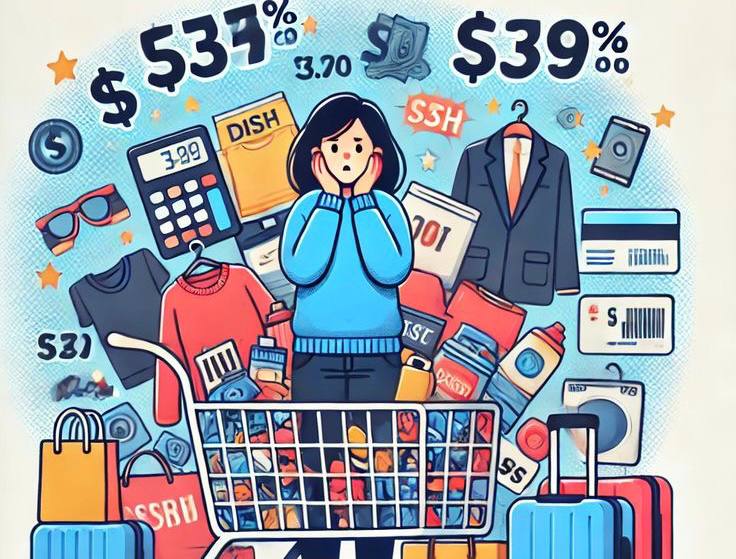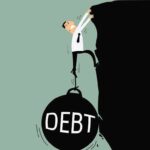What Does It Mean to Be an Informed Consumer?
In today’s fast-paced world, we are surrounded by advertisements, marketing tactics, online shops, and financial products competing for our attention. Every day, we make dozens of small and big financial decisions—what to eat, where to shop, which phone to buy, or even whether to take out a loan.
Being an informed consumer means making decisions based on knowledge, research, and critical thinking rather than impulse or manipulation. It means understanding your rights, recognizing the real value of products or services, and aligning your spending with your long-term financial goals.
But why is it so important to work on becoming an informed consumer? The answer lies in protecting your financial health, building smarter habits, and ultimately moving closer to financial freedom.
Protect Yourself from Scams and Manipulation
One of the biggest dangers of being an uninformed consumer is falling into traps created by aggressive marketing, misleading advertisements, or even outright scams.
- Scams and frauds: Fake online stores, pyramid schemes, and unrealistic “get rich quick” programs target uninformed people.
- Misleading deals: Discounts that aren’t real savings, “buy now, pay later” offers with hidden fees, or contracts full of fine print.
By becoming informed, you learn how to spot red flags: always read reviews, check the credibility of a company, and understand the terms of a financial product before signing anything.
Save Money by Making Smarter Decisions
Every dollar saved today is a step toward your financial independence. Informed consumers know how to:
- Compare prices across different platforms.
- Evaluate whether a purchase is a need or just a want.
- Look beyond the price tag and consider long-term costs (like maintenance or subscription fees).
Example: Instead of buying the cheapest phone, an informed consumer checks performance, warranty, repair costs, and resale value—sometimes paying a little more upfront saves you money in the long run.
Understand Your Rights as a Consumer
Many people lose money simply because they don’t know their basic consumer rights. Depending on your country, these rights may include:
- The right to return a defective product.
- The right to full information about ingredients, safety, or warranty.
- The right to fair contracts and protection against hidden charges.
By being informed, you not only protect your money but also hold companies accountable. Knowledge is your strongest shield.
Avoid Debt Traps and Financial Stress
Credit cards, payday loans, and “easy financing” often look attractive. But for uninformed consumers, they can quickly become a debt trap.
- High interest rates can double or triple what you originally borrowed.
- Minimum payment options keep you in debt for years.
- Misunderstanding loan agreements can damage your credit score.
An informed consumer reads the fine print, calculates the real cost of borrowing, and only uses debt as a tool rather than a lifestyle. This is a key step in building long-term financial stability.
Build Habits That Lead to Financial Freedom
Being an informed consumer isn’t only about avoiding mistakes—it’s about building habits that lead to wealth creation.
- You question every purchase: “Does this bring me closer or further from financial freedom?”
- You redirect unnecessary spending into savings or investments.
- You value quality over quantity, which often means fewer, better purchases.
Over time, these small daily choices build into a strong financial foundation.
Increase Your Purchasing Power
When you spend wisely, you keep more money in your pocket. That leftover money can be reinvested in:
- Emergency funds
- Stocks, real estate, or side businesses
- Education or skill-building opportunities
Being informed means you use your money to grow, not just to consume.
Gain Confidence and Control Over Your Money
Uninformed consumers often feel overwhelmed, stressed, or regretful about their financial choices. On the other hand, informed consumers:
- Feel empowered to negotiate prices.
- Can say “no” to bad deals without hesitation.
- Enjoy peace of mind knowing their money is working for them.
This confidence is not only about money—it’s about freedom of choice in life.
Practical Tips to Become an Informed Consumer
- Do your research: Always compare products and read reviews before purchasing.
- Understand contracts: Never sign a loan, subscription, or financial agreement without reading the terms.
- Know your priorities: Create a budget and stick to it.
- Educate yourself: Read books, blogs, or listen to podcasts on financial literacy.
- Avoid impulse buying: Wait 24 hours before making non-essential purchases.
- Track your expenses: Use apps or spreadsheets to know exactly where your money is going.
Your Path to Financial Freedom Starts Here
Becoming an informed consumer is not just about saving a few dollars—it’s about transforming your relationship with money. It’s about protecting yourself, avoiding debt, building wealth, and creating habits that lead to financial independence.
If your ultimate goal is financial freedom, then learning to be an informed consumer is the very first step. The more informed you are, the more powerful your financial decisions will become.








